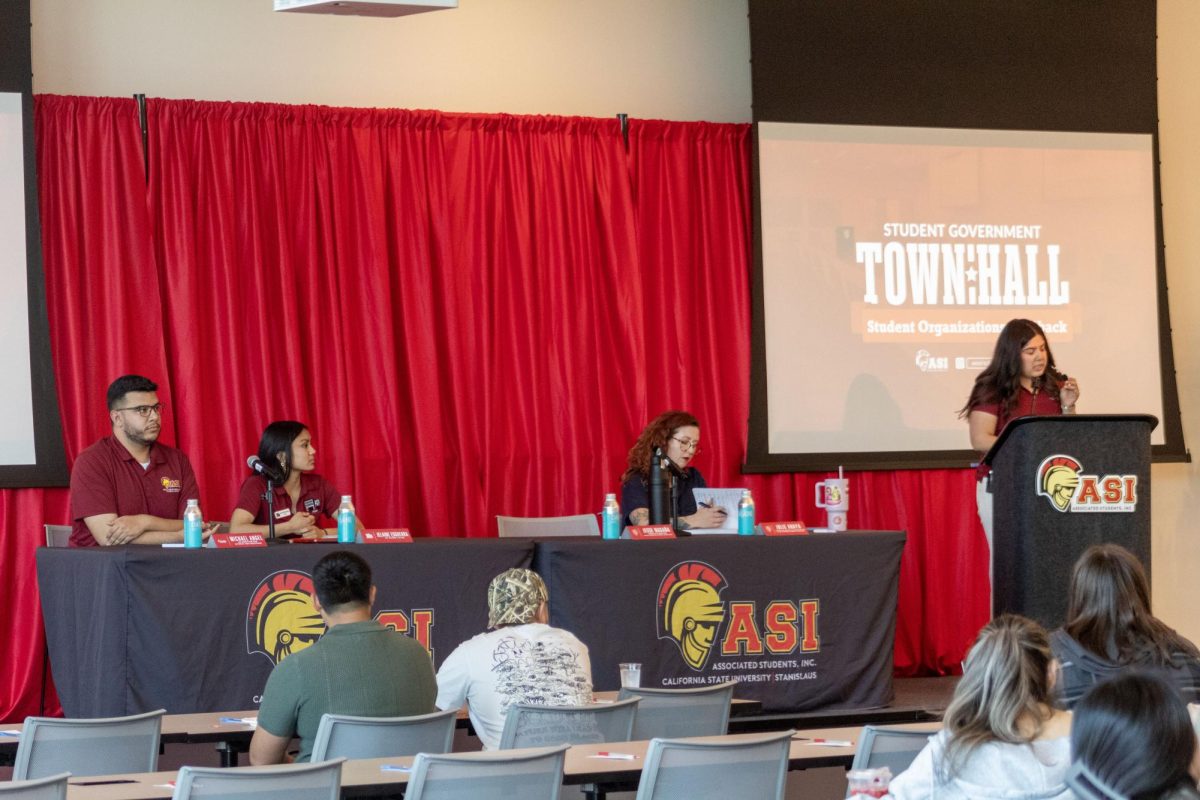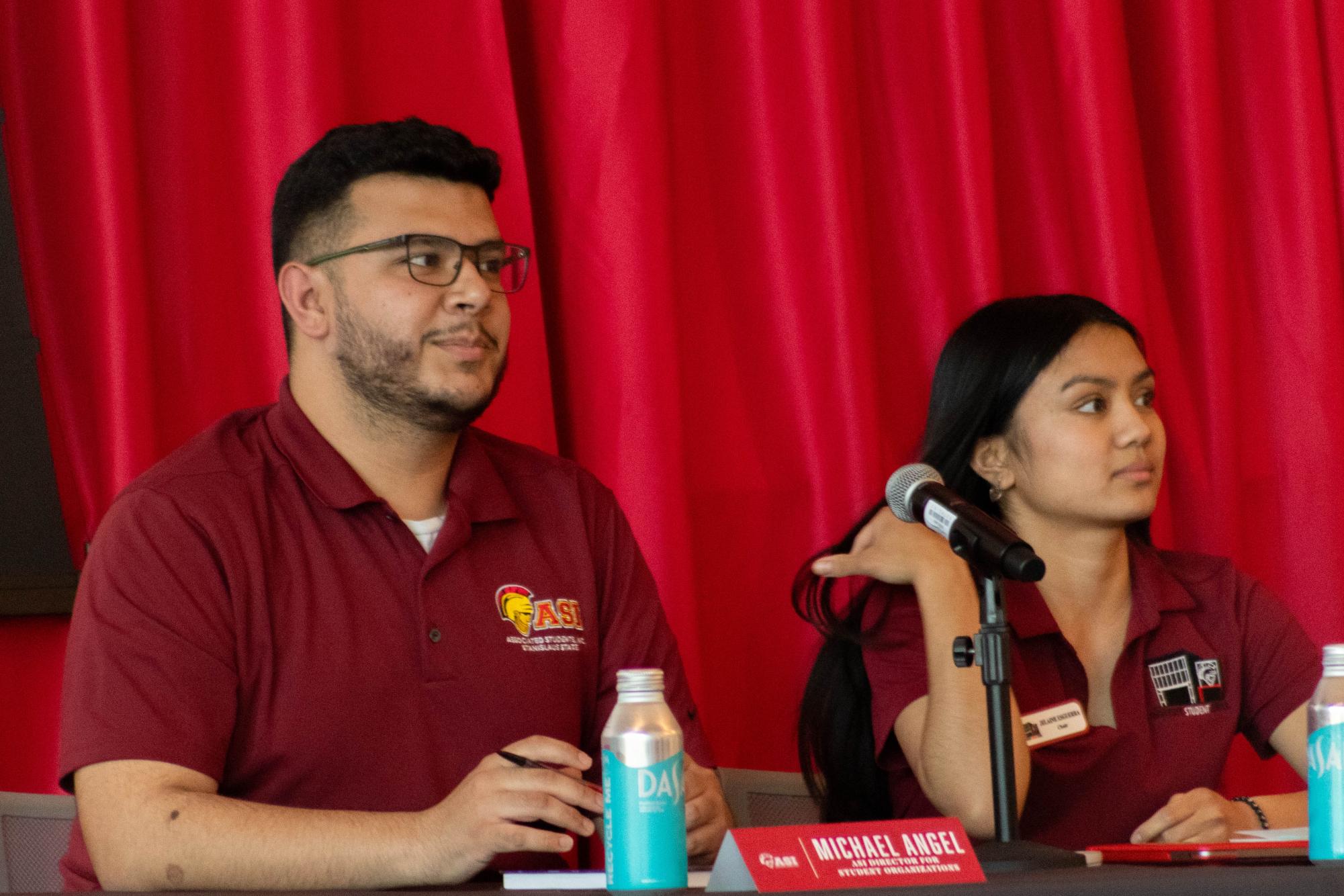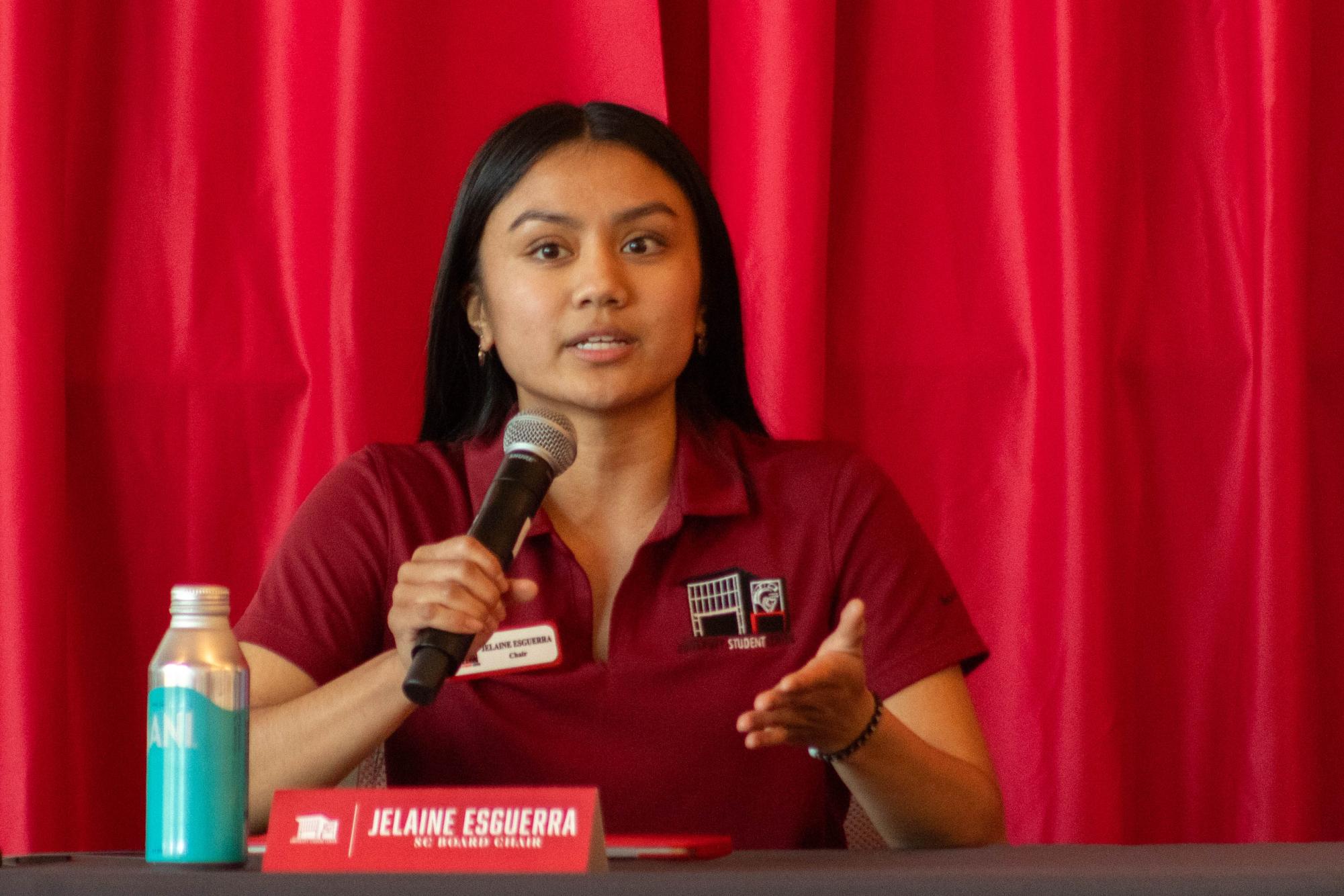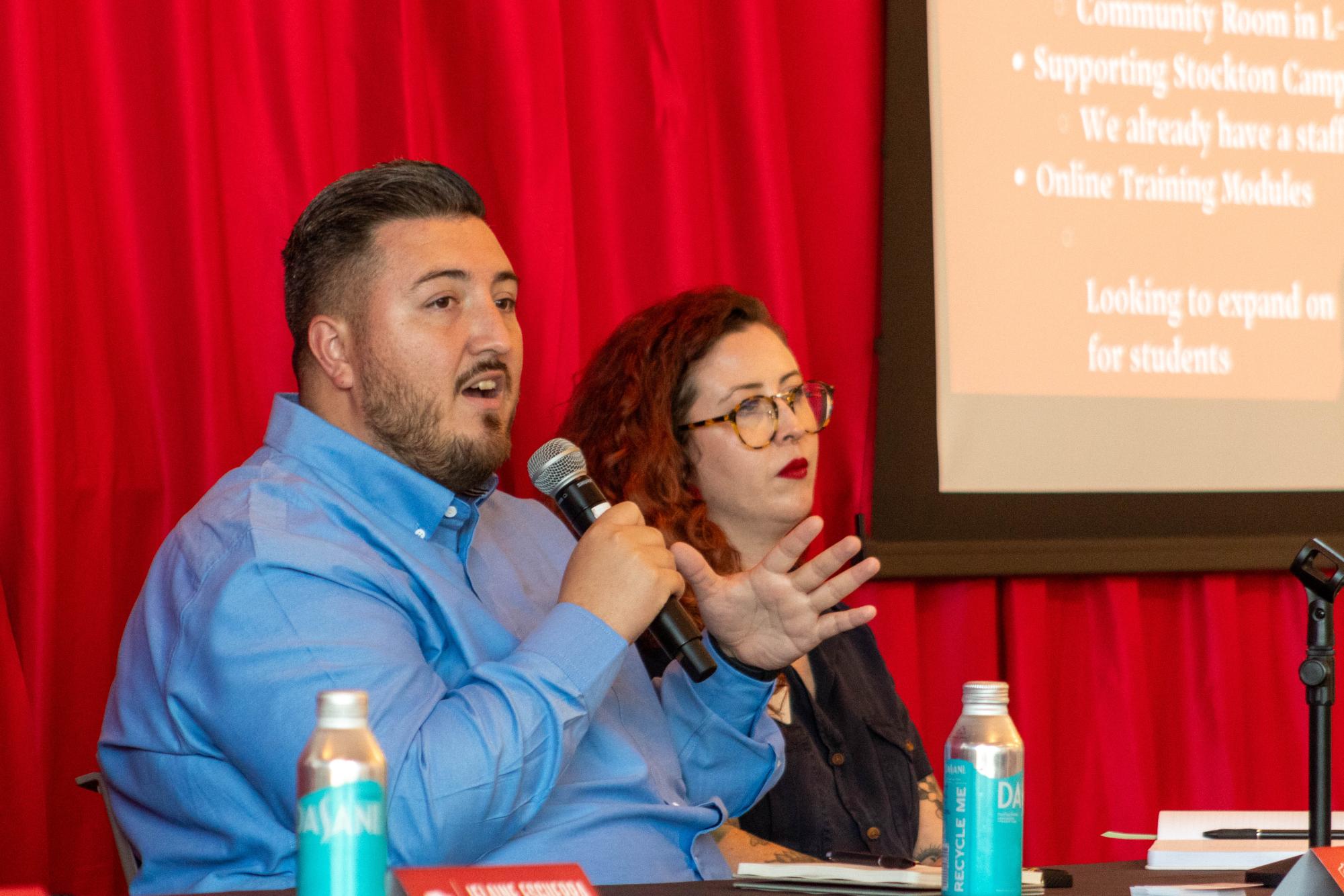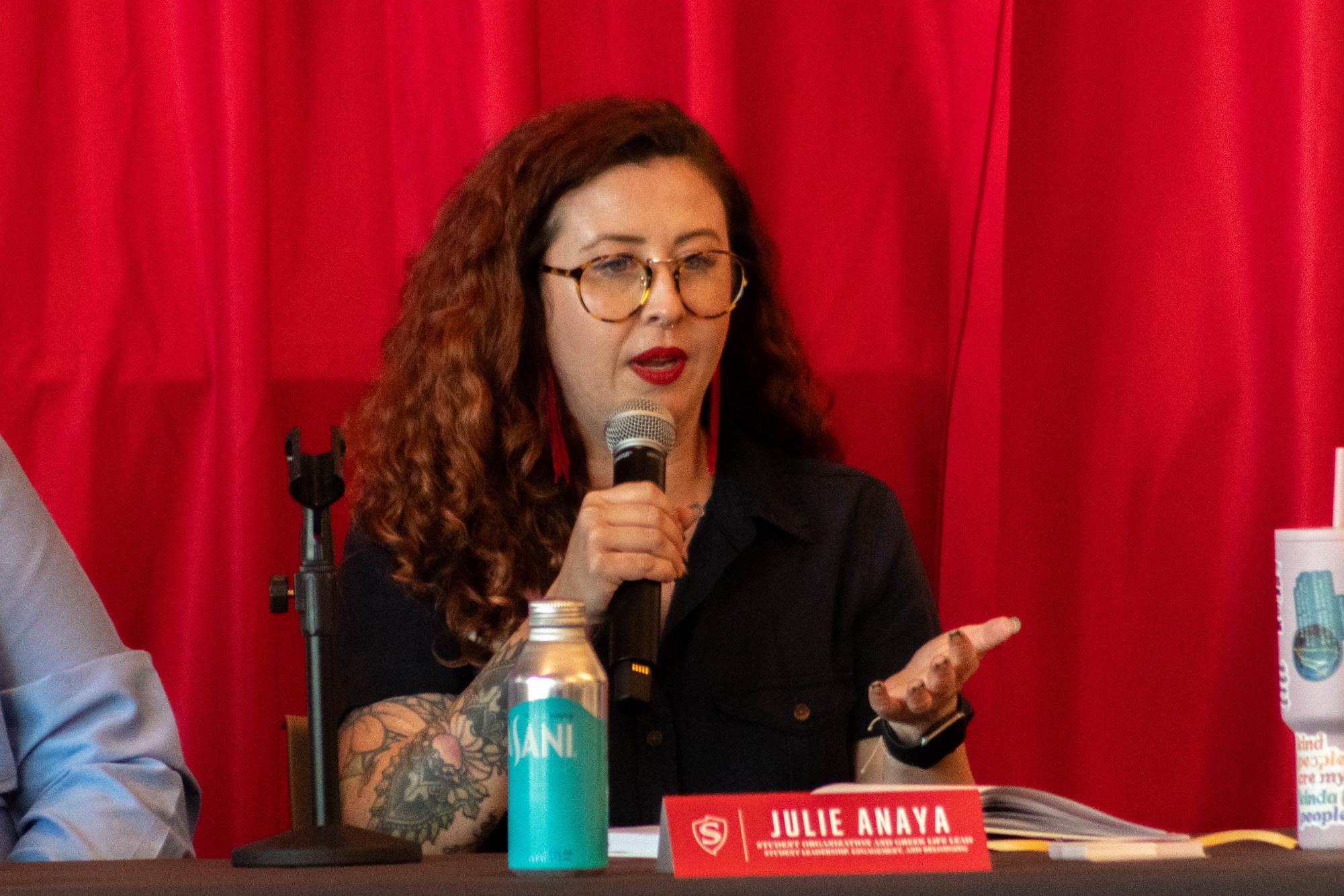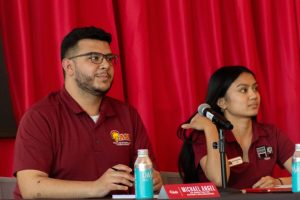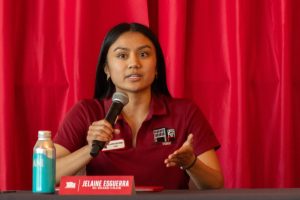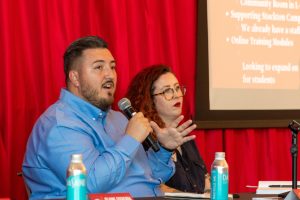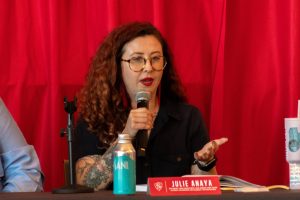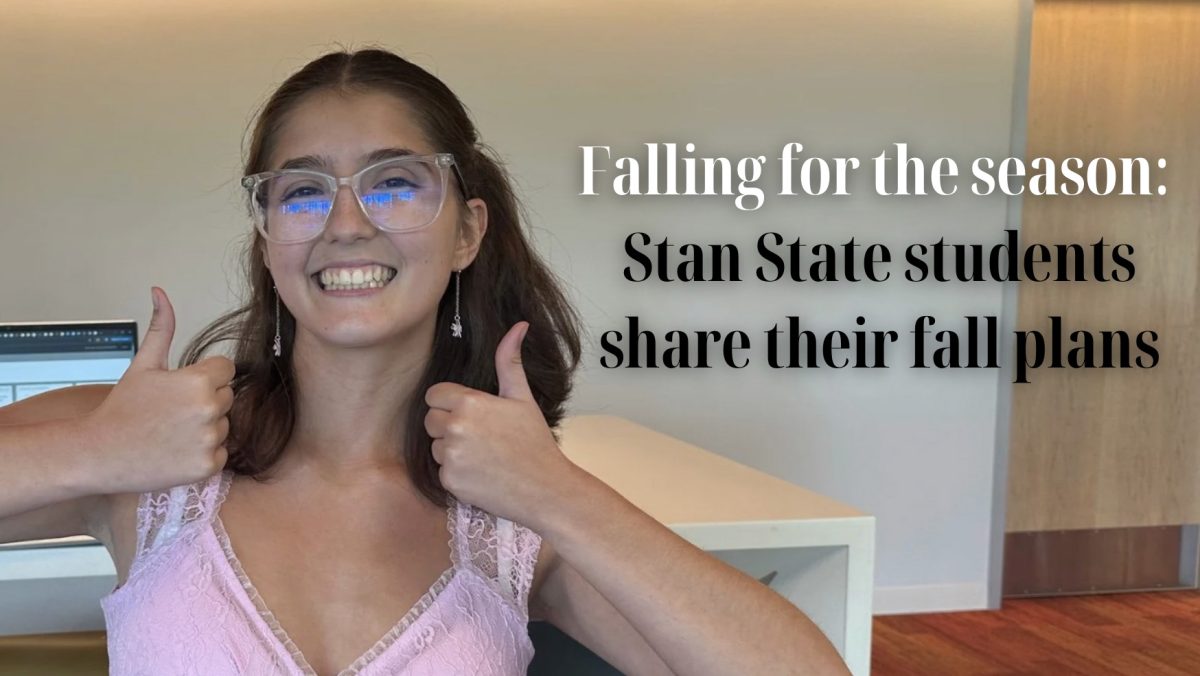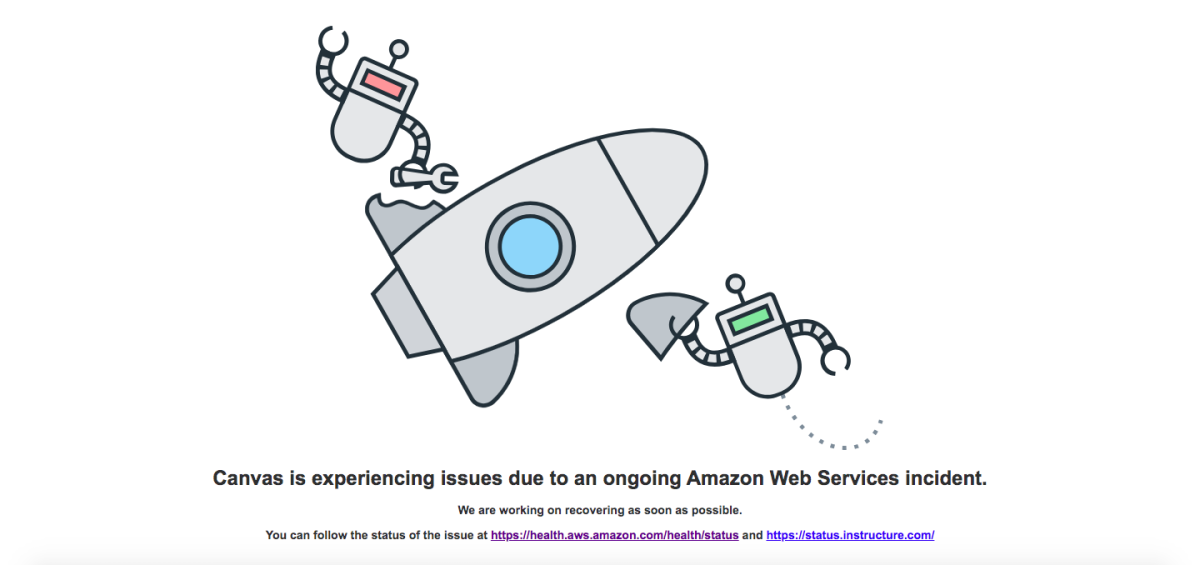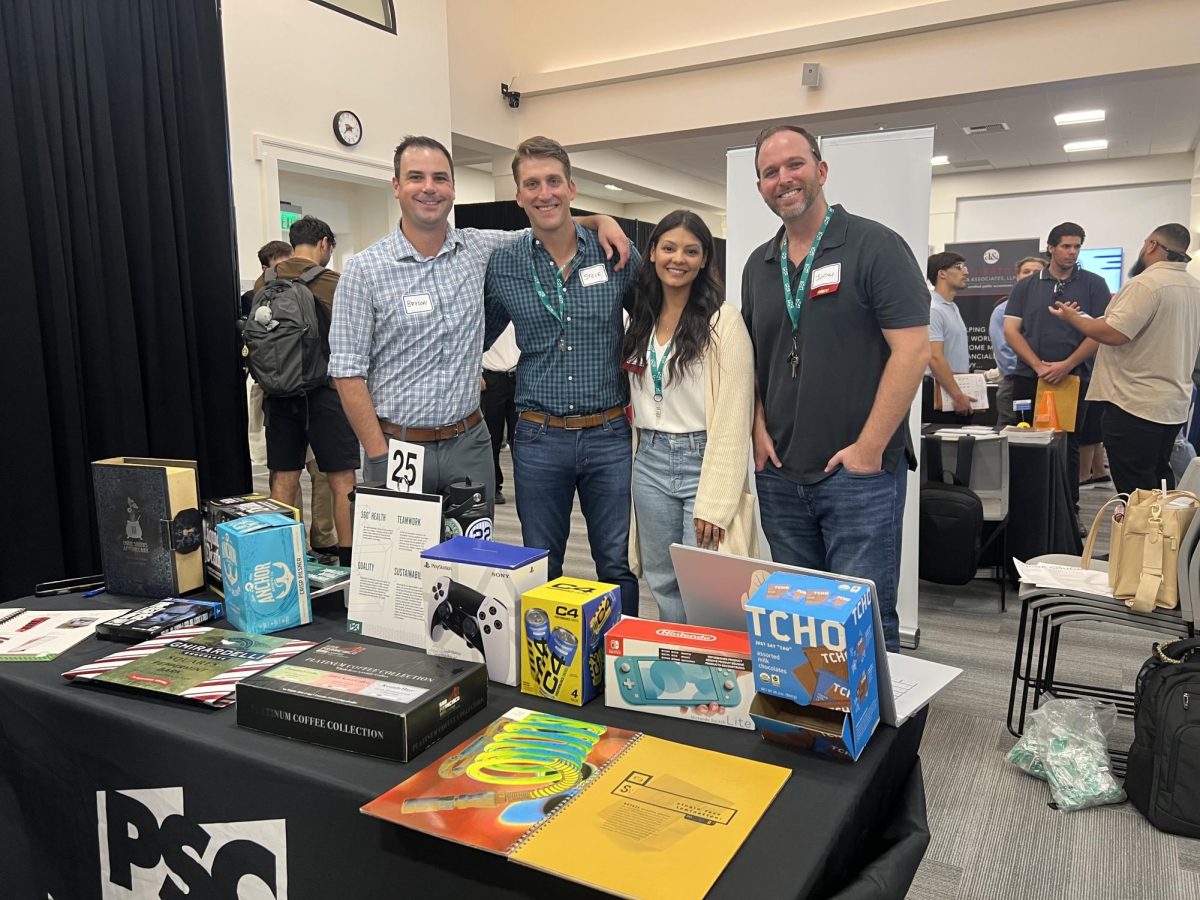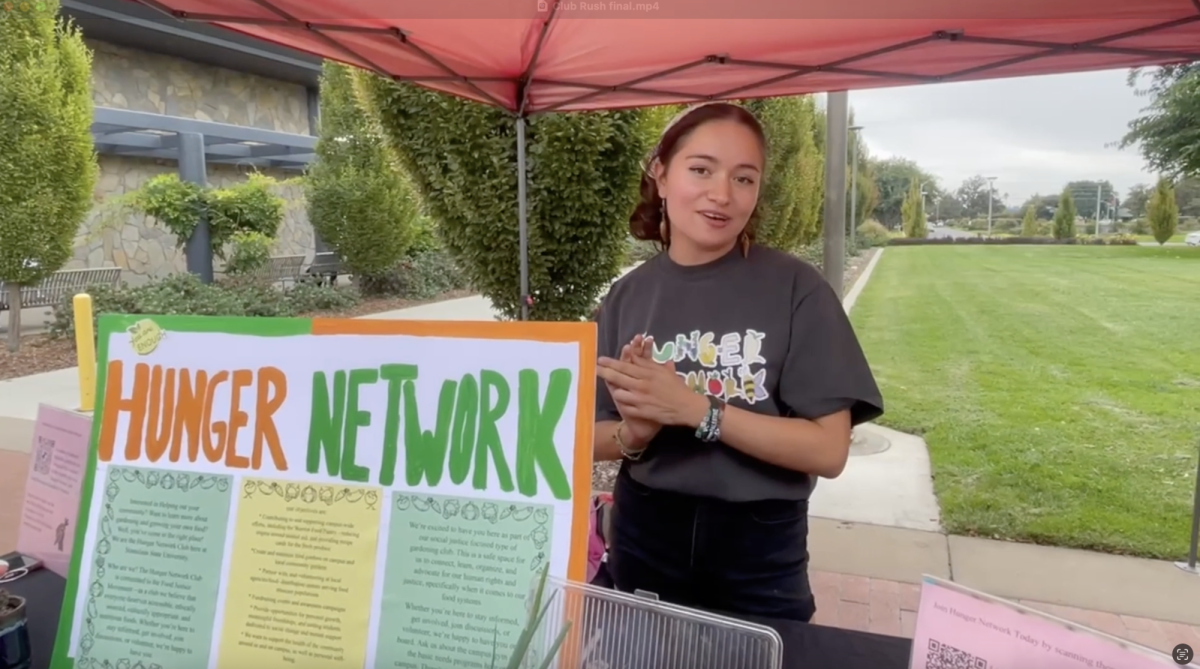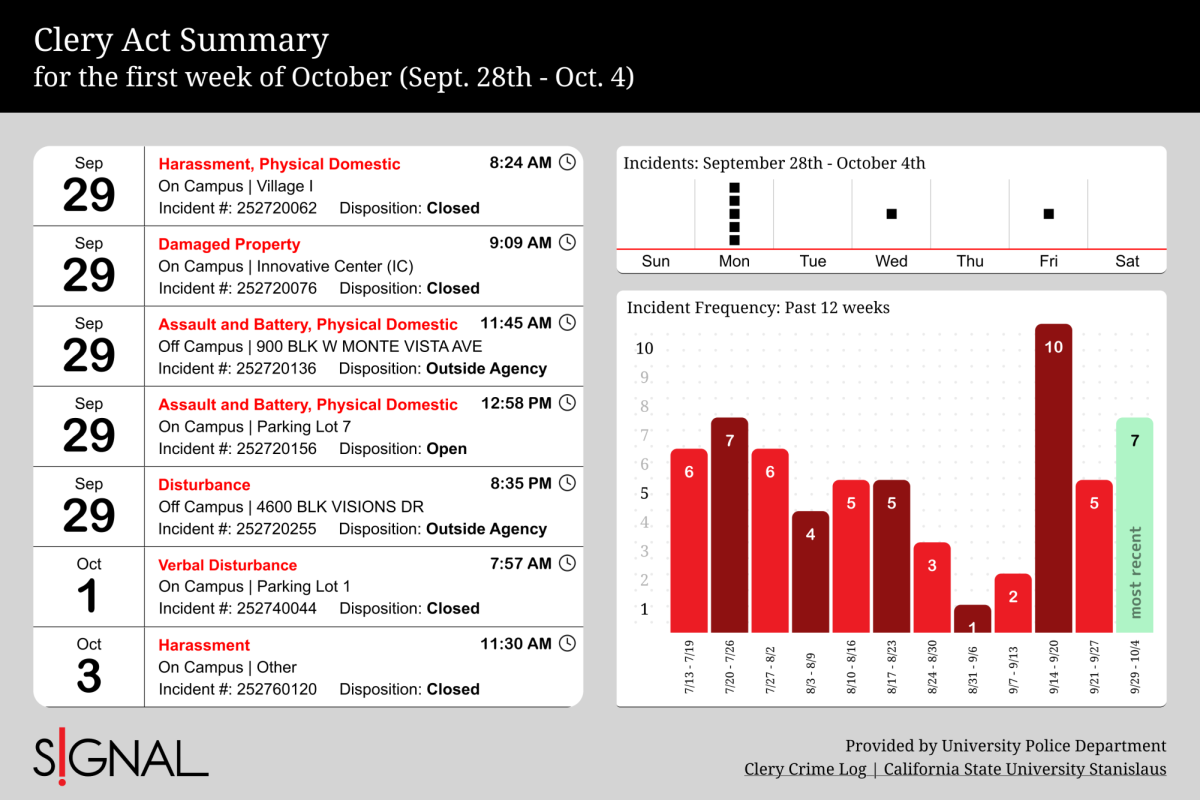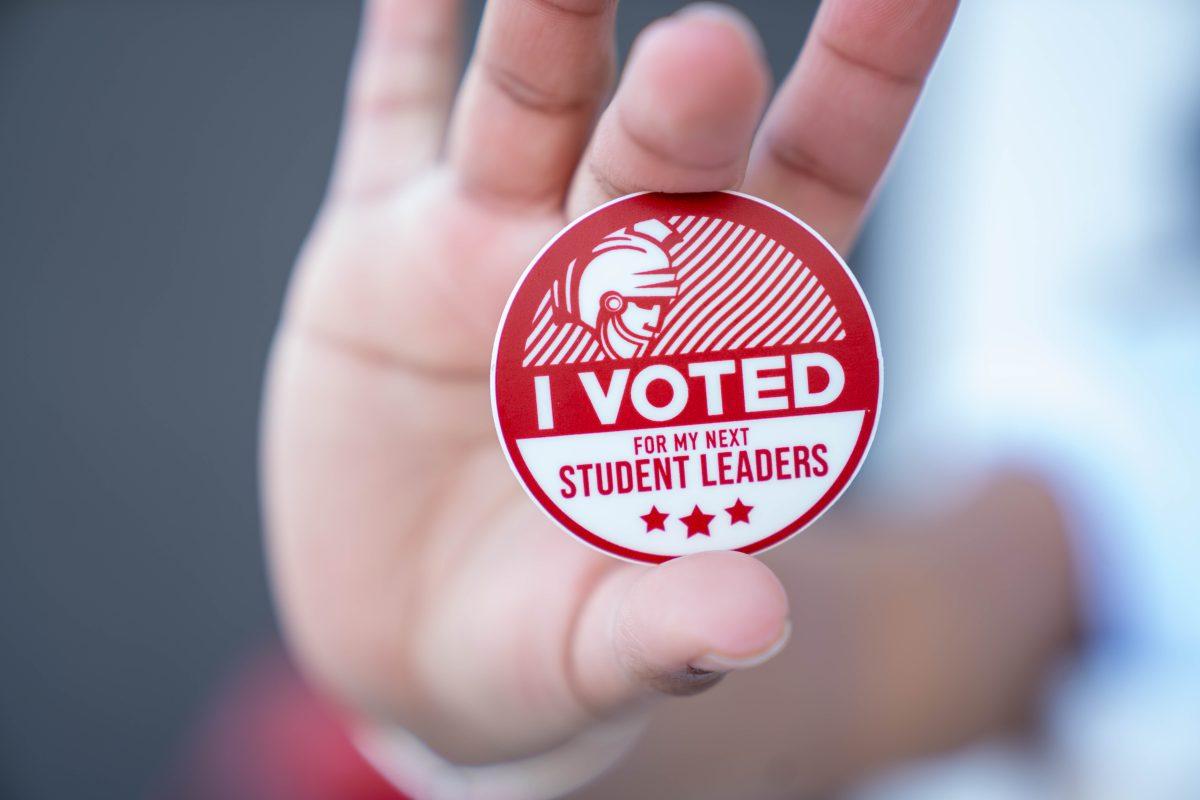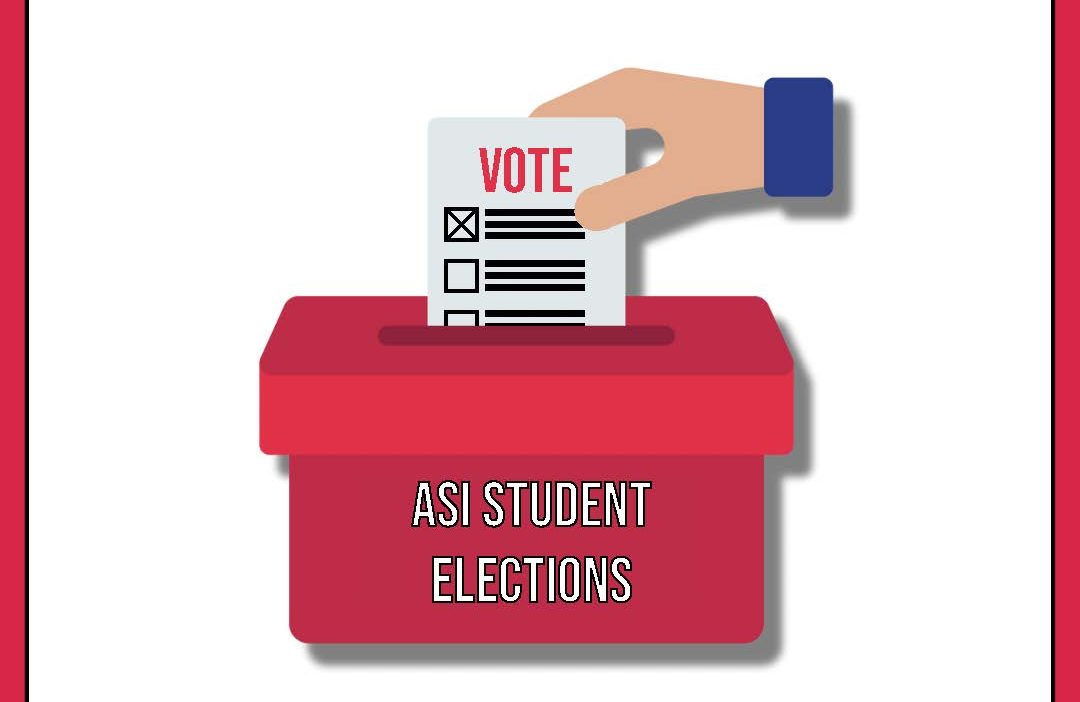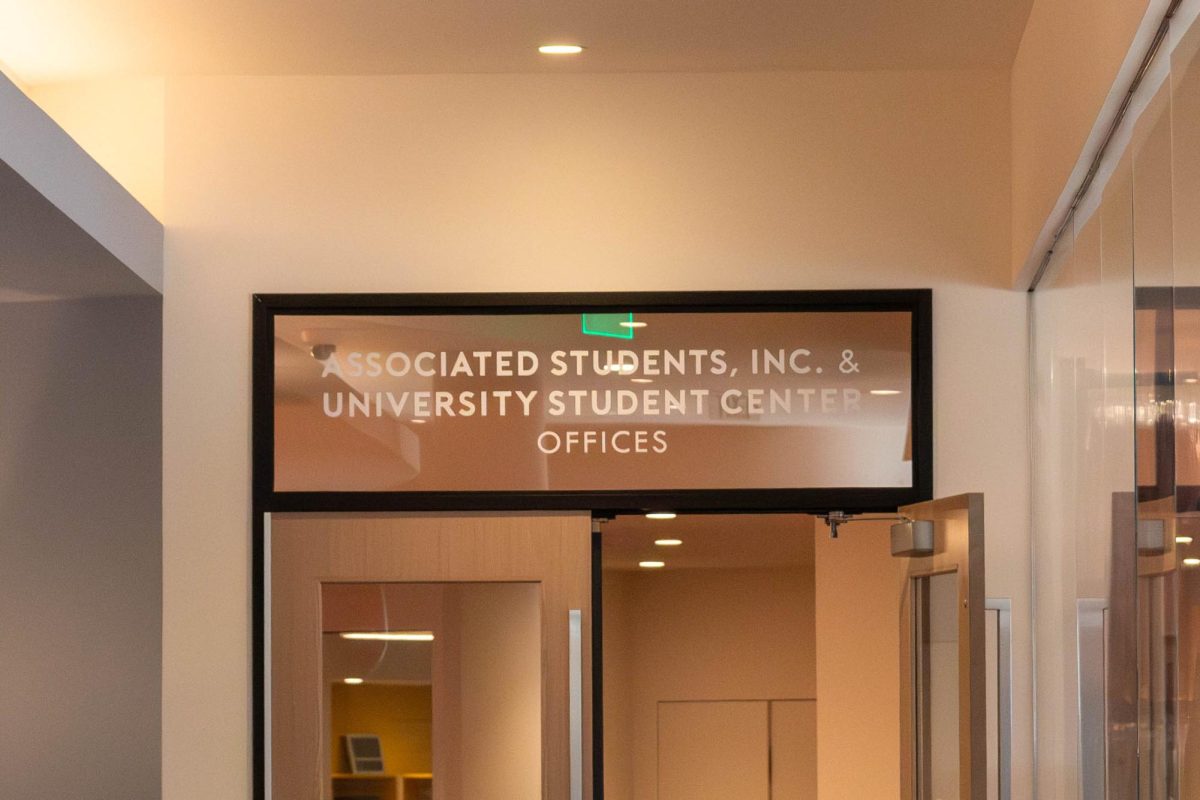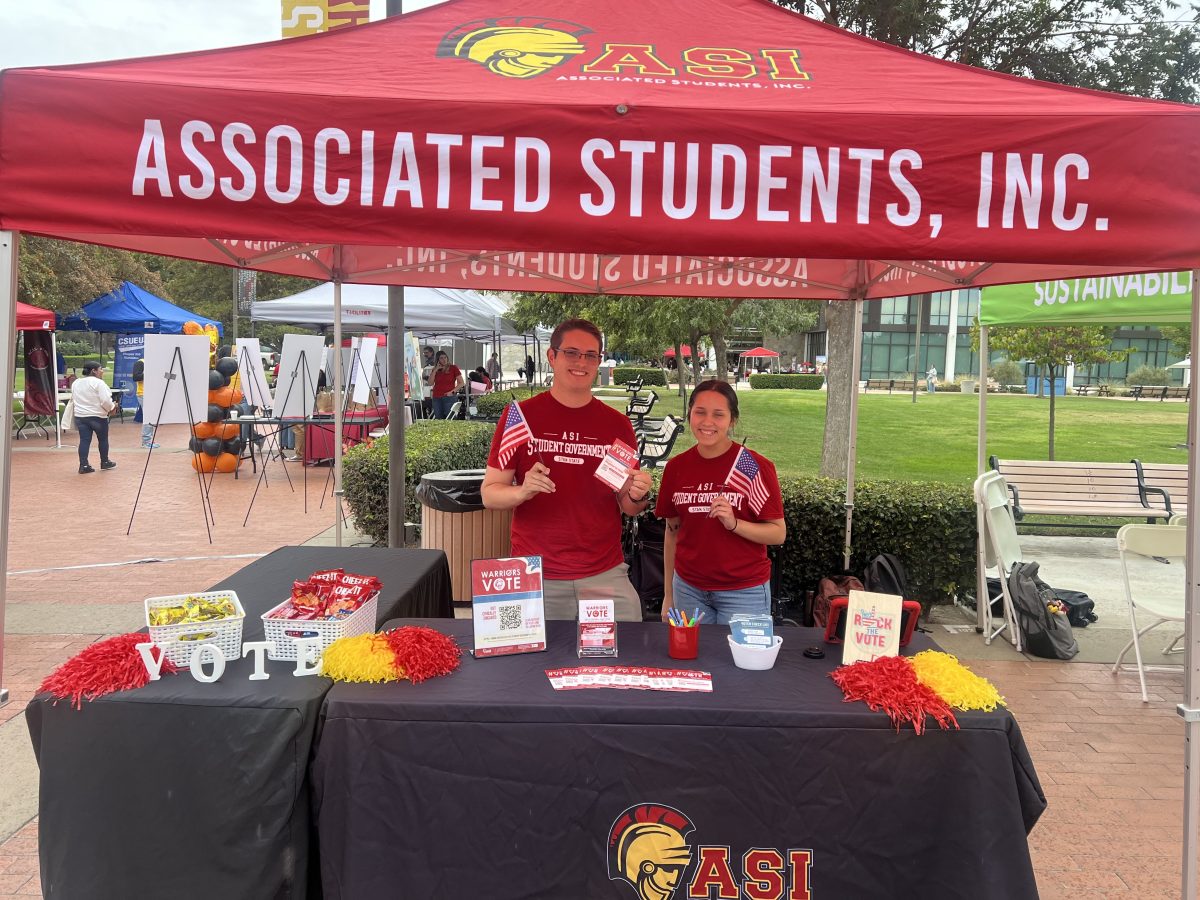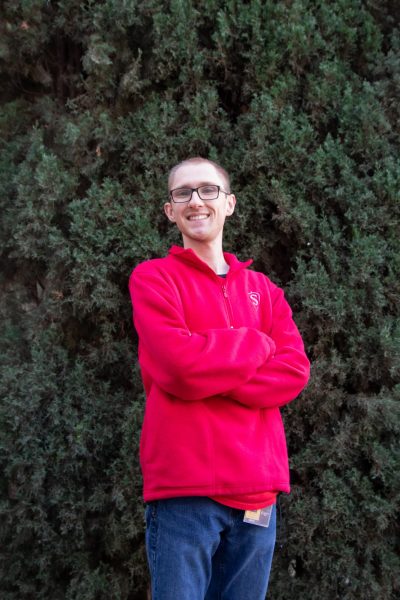Being part of and running a student organization comes with its challenges. This week, Associated Students Inc. (ASI), the Student Center and the Student Leadership, Engagement and Belonging office participated in a town hall to gather feedback and engage with student organizations, aiming to offer support.
On Tuesday night in the Student Center, Michael Angel (ASI Director for Student Organizations), Jelaine Esguerra (Student Center Board Chair), Jesse Magaña (Assistant Director, Student Leadership, Engagement and Belonging) and Julie Anaya (Student Organizations and Greek Life Lead) participated in town hall hosted by ASI focused on student organization on campus.
ASI marketed the event as a chance for student organizations to provide feedback.
“Calling all RSOs! Share your voice at our open Forum-connect with representatives and collaborate on improving student organizations processes and campus involvement,” the marketing read.
Many students from various student organizations responded to the call and attended the event.
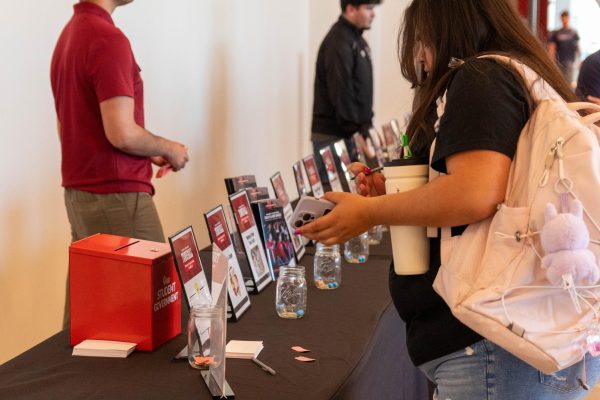
There was significant focus and discussion about the services offered by ASI, Student Leadership (SLEB), the Student Center (SC) and the Student Organizations and Greek Life offices to support student organizations in hosting events, holding group meetings and assisting students.
One of the main services sought by student organizations was funding. Ruby Sarmiento (Junior, Child Development), who is the vice president of the Theater Club, discussed the services her group relies on most.
“ASI Funding. 100%, 1000%. Without it, we wouldn’t have been able to do anything,” she said with a smile.
Student organizations can request funding from ASI up to three times per semester to help support their events, with a maximum of $2,000 annually.
According to ASI, about $40,000 is distributed to student organizations each year.
This money comes from the fees students pay to ASI each semester. A funding cycle is currently open until April 7, and Angel encouraged all student organizations to apply.
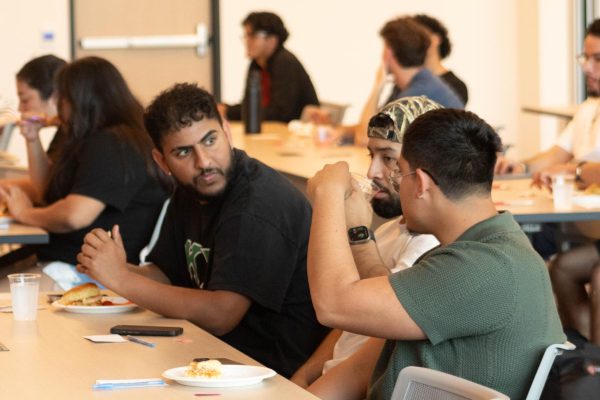
Taranjeet Singh (Senior, Computer Sciences) of Kappa Sigma shared that out of all the support services offered by the three organizations, the funding is the one they use the most and at this time the only one they use. He shared outside of that funding it can be hard to find money to support organizations programs.
He shared that they get told to, “Ask money for alumni, ask money from our friends. Just keep doing that, it gets repetitive, so maybe if we got some more funding from the school that would be really helpful.”
Magaña shared that they can’t support student organizations financially or give out funding but have been looking into other ways.
“OK, like we have money that we can use to purchase like, you know, lawn games students can rent out free of charge. And so we’re thinking more about what do we already have physically and what we are doing that we can expand on or do better to support students,” Magaña said.
This and other ideas are things SLEB is working for next fall. They shared a list of initiatives they are working on for Fall 2025. This list includes:
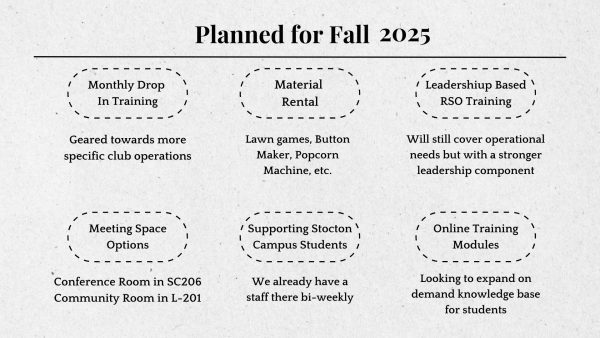
Their reasoning for the meeting space initiatives is that it can cost student organizations money to use space on campus, especially when facilities are needed.
The SC does provide event space to campus organizations at a discounted rate, but it still does cost money. This cost can be offset by meeting and event credit that the SC provides to recognized student organizations.
If they are recognized by August 1, they receive a $1,000 credit for the year to use towards event space cost. The credit will be prorated $100 each month after August 1.
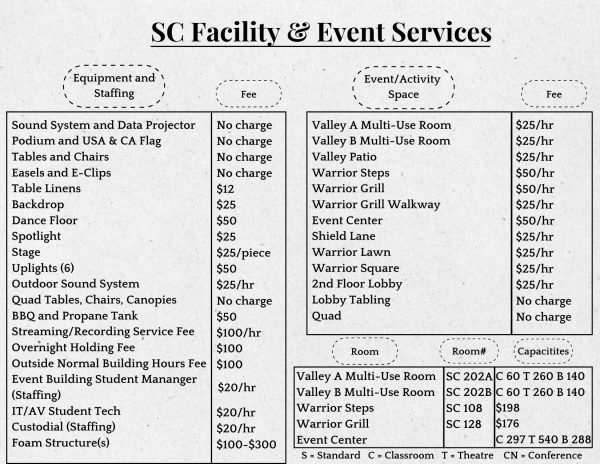
Magaña is still exploring more ways to support student organizations.
“One of the benefits of being someone new to campus, right, is that you get to see processes from an unbiased perspective, right? It’s like when I got here, I saw some of the processes that our office had in place. And I thought, like, OK, why, why do we do this or what is the purpose of this policy or what is the purpose of this process for students? And then you take a step further and like OK, now how do we remove this barrier?” Magaña said.
He has only been with SLEB since November and is still exploring what they can change to better help students.
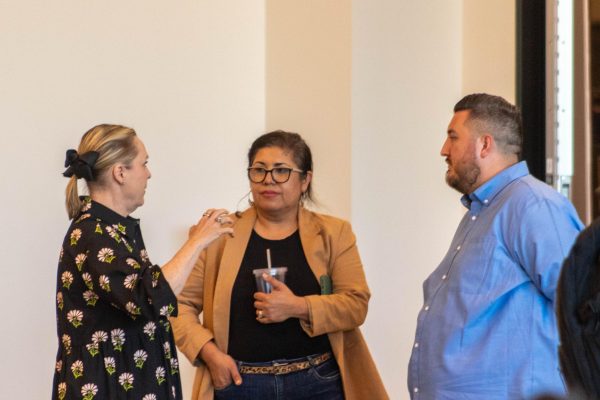
Singh shared some of the students’ thoughts on the efforts that Magaña is making.
“I think they answered all the questions actually, especially Jesse. He just recently got hired and he’s been doing a really good job,” said Singh.
Magaña says he is always open to feedback.
“I have an open door policy, so they’re always more than welcome to come into the office,” Magaña said, “And if I’m available, I’m happy to meet with students.”
He can also be contacted at his email at [email protected].



